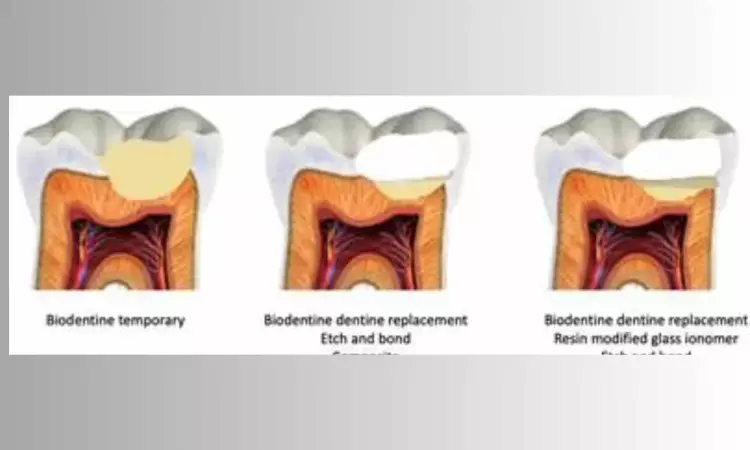- Home
- Medical news & Guidelines
- Anesthesiology
- Cardiology and CTVS
- Critical Care
- Dentistry
- Dermatology
- Diabetes and Endocrinology
- ENT
- Gastroenterology
- Medicine
- Nephrology
- Neurology
- Obstretics-Gynaecology
- Oncology
- Ophthalmology
- Orthopaedics
- Pediatrics-Neonatology
- Psychiatry
- Pulmonology
- Radiology
- Surgery
- Urology
- Laboratory Medicine
- Diet
- Nursing
- Paramedical
- Physiotherapy
- Health news
- Fact Check
- Bone Health Fact Check
- Brain Health Fact Check
- Cancer Related Fact Check
- Child Care Fact Check
- Dental and oral health fact check
- Diabetes and metabolic health fact check
- Diet and Nutrition Fact Check
- Eye and ENT Care Fact Check
- Fitness fact check
- Gut health fact check
- Heart health fact check
- Kidney health fact check
- Medical education fact check
- Men's health fact check
- Respiratory fact check
- Skin and hair care fact check
- Vaccine and Immunization fact check
- Women's health fact check
- AYUSH
- State News
- Andaman and Nicobar Islands
- Andhra Pradesh
- Arunachal Pradesh
- Assam
- Bihar
- Chandigarh
- Chattisgarh
- Dadra and Nagar Haveli
- Daman and Diu
- Delhi
- Goa
- Gujarat
- Haryana
- Himachal Pradesh
- Jammu & Kashmir
- Jharkhand
- Karnataka
- Kerala
- Ladakh
- Lakshadweep
- Madhya Pradesh
- Maharashtra
- Manipur
- Meghalaya
- Mizoram
- Nagaland
- Odisha
- Puducherry
- Punjab
- Rajasthan
- Sikkim
- Tamil Nadu
- Telangana
- Tripura
- Uttar Pradesh
- Uttrakhand
- West Bengal
- Medical Education
- Industry
Selective caries removal to soft dentine feasible treatment for deep caries lesions in permanent teeth: Study

Selective caries removal to soft dentine feasible treatment option for the management of deep caries lesions suggests a study published in the Journal of Dentistry.This randomized controlled clinical trial aimed to evaluate the clinical performance of composite resin restorations placed after selective caries removal to soft dentin (SCRSD) or stepwise excavation (SW) over an 18-month period. Inclusion criteria were patients with permanent molars and/or premolars presenting deep caries lesions (≥50 % of the dentin thickness). Teeth were submitted to SCRSD (n = 76) or SW (n = 76). Evaluations were performed based on FDI (World Dental Federation) criterion. Survival analysis was performed to estimate the survival of restorations and its association with clinical variables and socio-demographic characteristics (adjusted Weibull regression model). The study was registered on Registro Brasileiro de Ensaios Clínicos (ReBEC 65ntbc).
Results: The follow-up period ranged from 6 to 18 months (mean ± SD 16.3 ± 3.4 months). Patients' ages ranged from 9 to 55 years (mean ± SD 29 ± 10.5 years). A total of 135 teeth (SCRSD = 72; SW = 63) from 101 patients were evaluated. There were 4 failures in the SCRSD group (2 loss of restoration in need of replacement and 2 marginal fractures in need of repair) and 2 in the SW group (fracture in need of repair). The association between explanatory variables and restoration failure showed similar success rates for SW (99.4 %) and SCRSD (97.9 %) (p = 0.16). Patients presenting gingivitis (≥20 % of sites with gingival bleeding) had 8.50 times more risk for failure than those with <20 % of bleeding sites (p = 0.03). This study showed that placing a composite resin restoration over soft dentin (after SCRSD) did not affect its clinical performance after 18 months. SCRSD is a feasible treatment option for the management of deep caries lesions in permanent teeth as it preserves tooth vitality and tooth structure without compromising restoration longevity.
Reference:
Andrea Fontoura Recchi, Rafael Schultz de Azambuja, Luana Severo Alves, Marisa Maltz, Juliana Jobim Jardim. Restorations performance after selective caries removal to soft dentine: 18-month follow-up of a controlled clinical trial. Journal of Dentistry, Volume 147, 2024, 105099, ISSN 0300-5712, https://doi.org/10.1016/j.jdent.2024.105099 (https://www.sciencedirect.com/science/article/pii/S0300571224002689)
Dr. Shravani Dali has completed her BDS from Pravara institute of medical sciences, loni. Following which she extensively worked in the healthcare sector for 2+ years. She has been actively involved in writing blogs in field of health and wellness. Currently she is pursuing her Masters of public health-health administration from Tata institute of social sciences. She can be contacted at editorial@medicaldialogues.in.
Dr Kamal Kant Kohli-MBBS, DTCD- a chest specialist with more than 30 years of practice and a flair for writing clinical articles, Dr Kamal Kant Kohli joined Medical Dialogues as a Chief Editor of Medical News. Besides writing articles, as an editor, he proofreads and verifies all the medical content published on Medical Dialogues including those coming from journals, studies,medical conferences,guidelines etc. Email: drkohli@medicaldialogues.in. Contact no. 011-43720751


